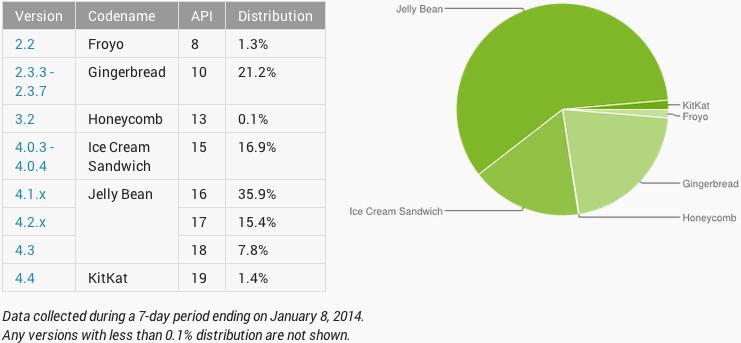
Last week, my mom decided she wanted a new phone. So, as you might expect, she called me up and she started asking me questions. Question after question, all of which boiled down to a certain list, but at the same time leaving out quite a bit. The truth is, when my mom gets a new phone, she's quite like a lot of "regular consumers" that will do the same thing at some point in time, and she's only really looking for a few key details in her new device.
I could give her a laundry list of reasons why one phone would be perfect for her, or why another phone might not be the best bet. But, just like I'd tell anyone (and as I often do every week), the best bet is to go into a store and play with the devices you find interesting. And, if you don't have any idea which devices are available for your particular carrier, that's actually even better. Just head in, and start messing with all of them.
You'll eventually find one that stands out.
As good as our phones are these days, I feel pretty confident in that statement. Eventually, after you go through them, you'll find one that you like. Whether it's the screen, the camera, or just the overall speediness of the experience, at least one of those devices is going to become your next handset.
My mom wanted me to come with her, so I met her at the carrier's brick-and-mortar location, and she began to browse. I told her that the One X would be a nice update to her then-current device (the One X), and so she checked it out. I gave her the bullet points, and told her why I like the phone, but you know what she told me?
"It will slide out of my hand." Well, okay then.
So, she doesn't want to have to worry her phone will slide out of her grip. She doesn't want to drop it and break it. Okay, understandable. The One is a pretty smooth device -- I could actually see that happening. At this point I know she wants a big screen and a device that won't slide out of her hand. So, I've got only one option:
Samsung's Galaxy Note 3. And guess what? She falls in love with it. She loves the big display. She loves the colors of TouchWiz. And, even if she doesn't think she'll use it all that often (I'm willing to bet she does), she loved the included S Pen and the cool pop-up features it offered.
While we were in the store, she looked at a lot of different devices. She checked out Apple's iPhone 5s and iPhone 5c; she played around with LG's G2, LG's Nexus 5, BlackBerry's Z10, a Lumia handset from Nokia, and plenty more. Ultimately, after all those devices, she decided to go with the Galaxy Note 3. And now, several days later, she's ridiculously happy with the choice.
Through all of that, you know what never came up? Not once? Even as she went from one Android device to the next, and experienced devices with proprietary software (and one without) vastly different from one another -- and even what she already had, you know what she never asked me about?
What version of Android the handset was running.
Because it doesn't matter. It just doesn't. At this point, Google's releasing these monthly statistics to show off, and obviously for developers (and people who just like this kind of stuff). The general consumer doesn't care about that stuff, and I bet a lot of people in general don't, either. I can tell you right now that for me, personally, I don't much care how saturated the market is with Android 2.x Gingerbread devices. Nor does it matter how many Android 4.x Jelly Bean devices there are.
That's as simple as it gets. If the belief that consumers cared which device their handset or tablet ran was true, and that people were avoiding devices because of it, Android wouldn't have gained steam at all. It would have failed right out of the gate, and especially right around the time Android Gingerbread, Honeycomb and Ice Cream Sandwich were all vying for attention at the same time.
I think it's great that Android Jelly Bean has managed to gain so much ground in the Android market. That's fantastic for the platform, and I'm sure that Google is happy to see the majority of Android devices out there running a version of their mobile platform that's closest to the newest. Rather than being several versions behind, as we've seen happen in the past.
Google's not going to stop using version numbers, and there won't ever stop being delicious dessert nicknames for them, either. And that's okay. But I think it's safe to say that Android has jumped -- no, leapt over that whole "fragmentation" nonsense, and made the platform work for what it is. Can we all stop arguing, fighting, and whatever else over it?
I think that'd be great. What do you think?